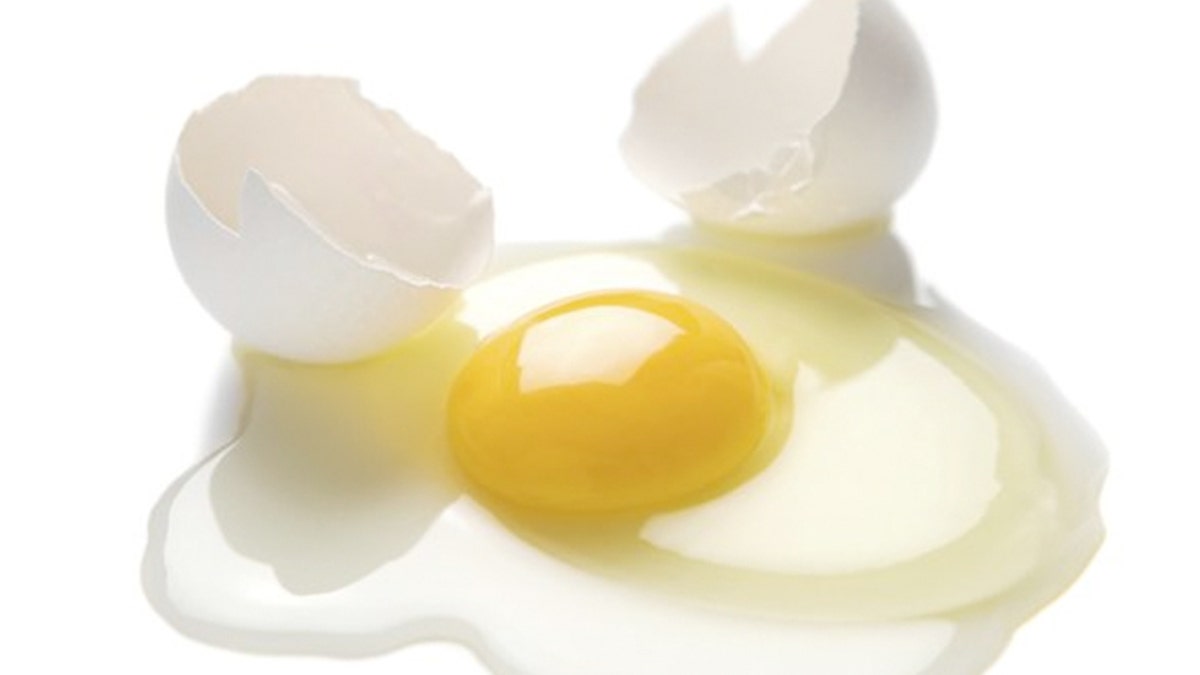
There’s new information that may make you think twice before dumping those bright yellow orbs. (iStock)
Breakfast just wouldn’t be the same without the incredible edible egg. But over the years, the egg yolk has gotten a bad rap. Studies warning of elevated cholesterol levels and plaque buildup in coronary arteries have caused many people to reject them.
“Very few foods have the same diverse nutrient makeup available in a single egg.”
You need only to take a look at the abundance of supposedly heart-healthy breakfast options out there. Egg-white omelets are available at most restaurants, and even McDonald’s offers the Egg White Delight McMuffin – an egg white-based breakfast sandwich.
But just when you think it’s too risky to touch an egg yolk ever again, there’s new information that may make you think twice before dumping those bright yellow orbs. Thanks to modern farming, their quality is improving. And when it comes to classic cuisine, chefs say there’s nothing quite like them.
The latest studies have found that an egg yolk a day has no effect on cholesterol levels -- even for people with elevated numbers. A study published in January 2013 by the British Journal of Medicine examined the relationship between egg consumption and coronary disease from 17 studies over 30 years and concluded, “Higher consumption of eggs (up to one egg per day) is not associated with increased risk of coronary heart disease or stroke.”
It’s important to remember that yolks do contain a significant amount of cholesterol – 185 mg, or about 60 percent of the American Heart Association’s daily recommended allowance.
But Maria Bella, a registered dietitian and founder of Top Balance Nutrition in New York City, says there are lots of benefits to eating the whole egg.
“Very few foods have the same diverse nutrient makeup available in a single egg,” Bella told FoxNews.com. Those nutrients include vitamins like folic acid, choline, biotin and lutein. Eggs also provide about 10 percent of the daily recommended vitamin D. And almost all of these nutrients are found in yolk.
Mitch Kanter, executive director of the Egg Nutrition Board, says his organization is working to fund new studies about how eggs affect our diets. “More research done in the last five to 10 years has shown us that cholesterol is not the nutritional boogeyman we once thought,” he says.
Even the way hens are being raised is producing healthier eggs.
In 2010, the USDA conducted a nationwide nutritional study and found that eggs today contain 12 percent less cholesterol and more vitamin D than they did over 10 years ago, due to bird breeding and new diets. That’s because commercial factory hens are fed a corn-based feed that’s been nutritionally enhanced.
Although Kanter admits that the egg industry is a far cry from humble backyard chicken coops, the commercial factory farms that dominate the industry are under pressure from consumers to replace cramped, overcrowded cages or even cage-free environments for its egg-laying hens.
Even the smaller organic egg producers are figuring out ways to improve cage life for their egg-laying hens.
Jesse Laflamme, co-owner and CEO of Pete and Gerry’s Organics, says his company’s hens have more cage space, get organic feed rich with ingredients like flax seed and are free of antibiotics. As a result, Pete and Gerry’s -- the first American egg producer to be labeled Certified Humane by the non-profit group Humane Farm Animal Care – says it produces eggs that contain 200 mg of omega-3 fatty acid, as opposed to the 37 mg found in many commercially produced eggs. Almost all of this essential fatty acid is found in the yolk.
“We definitely feel the pressure from industrial farms, where a caged egg is simply a commodity,” Laflamme says. “They’re putting in different quality feed, so the eggs are going to be different. What’s not in the eggs is just as important as what’s in them.”
As for flavor, Laflamme says his cage-free eggs “just taste different.”
But Marc Bauer, a master chef at the International Culinary Center, thinks organic and non-organic eggs taste about the same, especially after they’ve been incorporated into a recipe. And when it comes to cooking, he says the whole egg is an essential ingredient.
Eggs are an important binder in pastries, add flavor to classic French dishes and help remove impurities from consommés. The yolks are nearly irreplaceable for thickening custards and act as an emulsifier in countless sauces. No one wants a hollandaise that separates.
“The egg is one of the important parts of classic cuisine,” Bauer says. “Today we have synthetic binders and texture improvers, but the egg will always be the natural choice.”
He said he’s experimented with tofu and thinks the Japanese variety can form a silky vegan substitute for certain creamy desserts and quiches, but he still teaches his students that, generally, whole foods are best.
“I personally never use egg substitutes. Everything should be in moderation, but for cooking, you cannot beat the protein and vitamins in a natural egg.”
His family’s favorite egg dish? “Softly scrambled (with the yolk) in the traditional way, just before they set. It’s perfect.”
